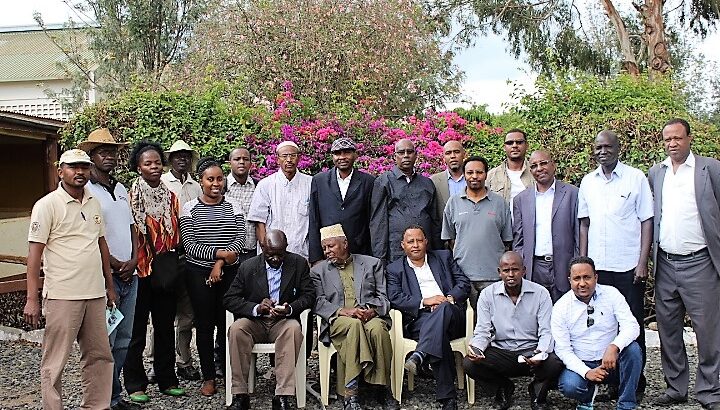IGAD Centre for Pastoral Areas and Livestock Development (ICPALD) has organized the above sharing event during the period 10th – 11th, April, 2017 in Nanyuki, Kenya. The delegates for this workshop were drawn from pastoral associations depending on camel and camel products, extension officers from IGAD Member States and ICPALD
In general, in the context of the drylands which is usually perceived as unique compared to other ecosystems, optimal strategies and management practices are required to promote sustainable management of resources. For instance, improved practices on value addition of livestock and/or livestock products such as camel milk can make a difference as far as livestock development is concerned. In Kenya for example, camel milk represents one of the most suitable avenues through which increased livelihoods of communities in ASALs can be achieved. In drought-stricken areas such as ASALs camel can survive and continue producing milk as compared to other livestock species. One of the formal marketing channels of camel milk in Kenya is the private company called Vital Camel Milk Ltd which represents a sound business model that could be replicated elsewhere in ASALs. Another management practice is hay production and commercialization widely practiced in ASALs due to forage scarcity associated with land degradation, climate variability and change. In Laikipia County for instance, with support from the County Government, where the demand for hay is high from the surrounding pastoral areas, grass farming is now promoted on commercial basis. Agaisnt this bachground ICPALD has organized this experience sharing event aiming to contribute to the strengthening of information sharing and promote learning on improved livestock management practices that could make a difference and which represent a successful business model and best practices that can be scaled up elsewhere.
The shared concern is that camel is a marginalized livestock species despite the current growing awareness about its multifaceted benefits, and raising of awareness supported by extension advisory about improved practices of hay production and marketing.
The workshop recommended addressing of bottlenecks to camel milk value chain through cooperatives and other relevant arrangements., provision of investment incentives, prioritizing extension services for pastoral areas by the governments with emphasis on rangeland rehabilitation and policy incentives for increased hay and fodder production and marketing by the private sector.
ICPALD expresses its appreciation to European Union (EU) for funding this activity under the Regional Integration Support Programme (RISP3) and Reinforcing Veterinary Governance Programme (Vet-Gov).





